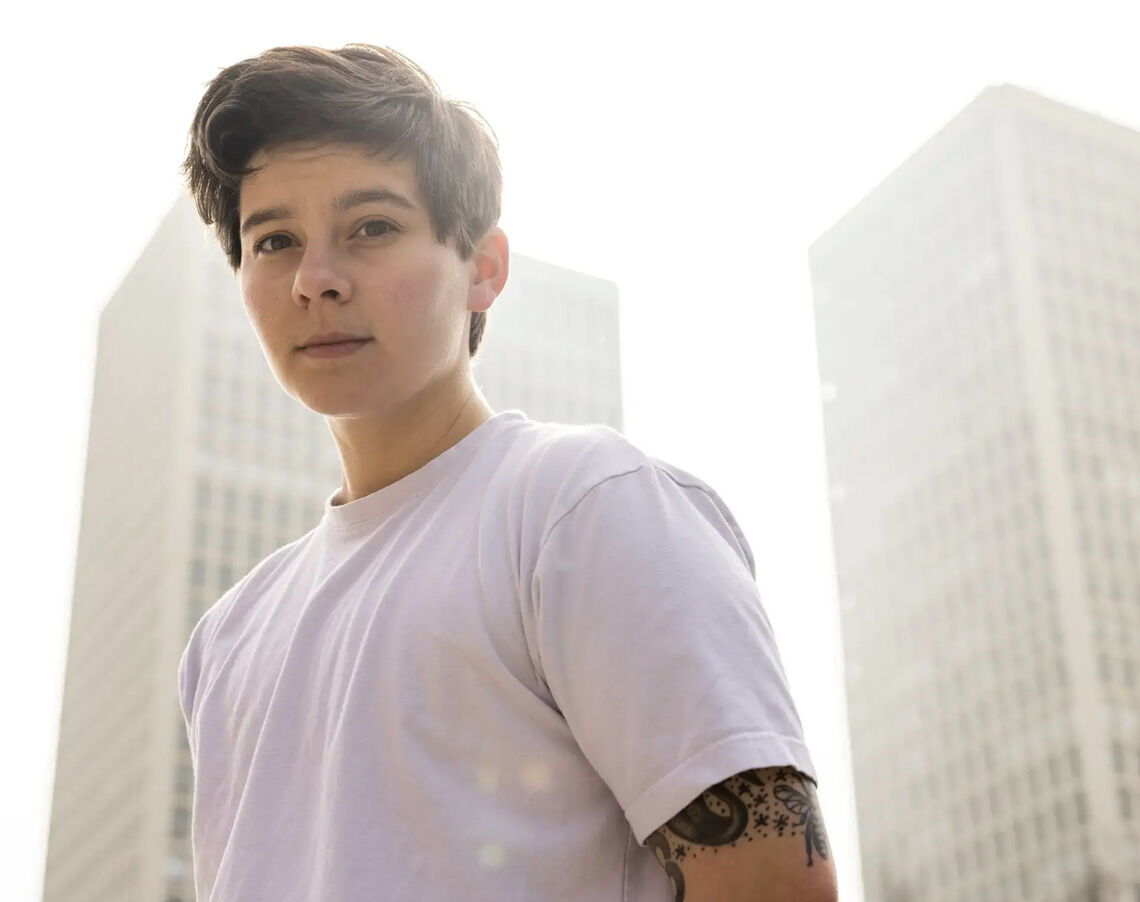The sun is drifting away again, behind clouds
that look most like the hairs well sprung
from my temples. I can’t see the sun setting,
but I know it is. So many things are like this:
merely a sensation of truth. I can’t see my body
changing, but I know it already is. Just as I know
there’s a woman at the benches on Bainbridge
Street, though I am not there with her.
She is thumbing through a stack of photos
of her son, printed on copy paper,
kept quarter-folded in her purse. I know
that her son is adored, though I sense
he does not. I know that my masculinity
is a fragile and delicate thing. I refuse all
glasses with stems. I’ve always been clumsy
with a sense of strength that I may or may
not have. My partner says: Your handwriting
looks like you grew up in the forest, like worm-
wood, or bark and brambles. I fell a tree
in a suburban New Jersey township
and my partner tells me I’ve never looked quieter,
or less furrowed, even as my hands bleed
from some gnashing saw teeth. In another
suburb, one hundred miles northwest,
my mother keeps my comic book collection,
safe and organized in her closet, even though
I am thirty-one with a house of my own. When
I visit, I flip through the covers: Machine Man
2020, The Jetsons in their flying hatchbacks.
We are living in the future now and over
the weekend I teach AI about trans bodies,
and it learns so much faster than family,
or the men at my favorite dive bars. I ask
AI to show me a trans man in a red river
of lily pads, and it is impossible not to feel
seen, and in Technicolor at last. When I tell
my grandmother that I’ve gone to collect
the vial and syringes that will raise my blood
pressure, damage my liver, stubble my face,
she tells me she visited my great-grandmother,
who has begun to blink with a distinct and deadly
forgetfulness. She tells me my great-grandmother
either knew me as my gender or didn’t know me
at all. Perhaps if the whole world knew me
either correctly or not at all, it would feel softer.
Down the street, a neighbor I never met
passed in the early morning. He was just 40,
and looking out from my window, I see his son, just 9,
and walking home from school. On New Year’s Eve,
confetti rains down around his home, his family.
My dog watches the fireworks from the window
with wonder, all of his fear absolved by the exploding
colors he may or may not see. What a strange
world of sensations this is: falling asleep
to a movie you did not pick, the burn of a button
on your forearm straight out of the dryer,
the rustle of scratched lottery tickets mixed
with a few brittle fall leaves. In South Philadelphia,
my neighbors use tape to tie their garbage bags:
duct, masking, packing. These are regionalisms,
just the same as crayfish or crawfish. Crick
or creek. They look so beautiful and practiced
as they toss the ponytailed bags off their stoops,
their free hand waving in a grandchild from
the street as the sun we cannot see, sets.
I am so unpracticed at being neighborly. But still
I worry after Vicky’s blood pressure without knowing
quite how to show it. I worry about my body changing,
and her, and Nancy, and Roe, knowing that I haven’t
been a lady while shoveling three houses’ worth of snow.
But winters have been mild, more mild each year,
even if the solstice darkness stays much the same.
In the dark, I’ve taken to oil painting, in mainly muddy
reds, rivers of crimson. The cops have taken to killing
climate activists. And I have taken to hiding
from my friends for years at a time. David Lynch
talks of living in fear during his time in Philadelphia,
and both my partner and I find this funny, not
necessarily because it’s untrue but because where
haven’t we lived in true and unadulterated fear?
My partner cries when they realize, soon enough,
they won’t be able to protect me in the restroom.
And I would cry too if they weren’t already wet
in my arms. Nothing I feel feels new, instead,
a raw and constant chafe, an always burning
yearn for the dead. But when my partner
and I fuck in the middle of the night, it is so circadian,
so early-human of us. There are no whispers of sonder.
No knowledge sans instinct. Really no fear, except
for all the carnivores braying outside our front door.
